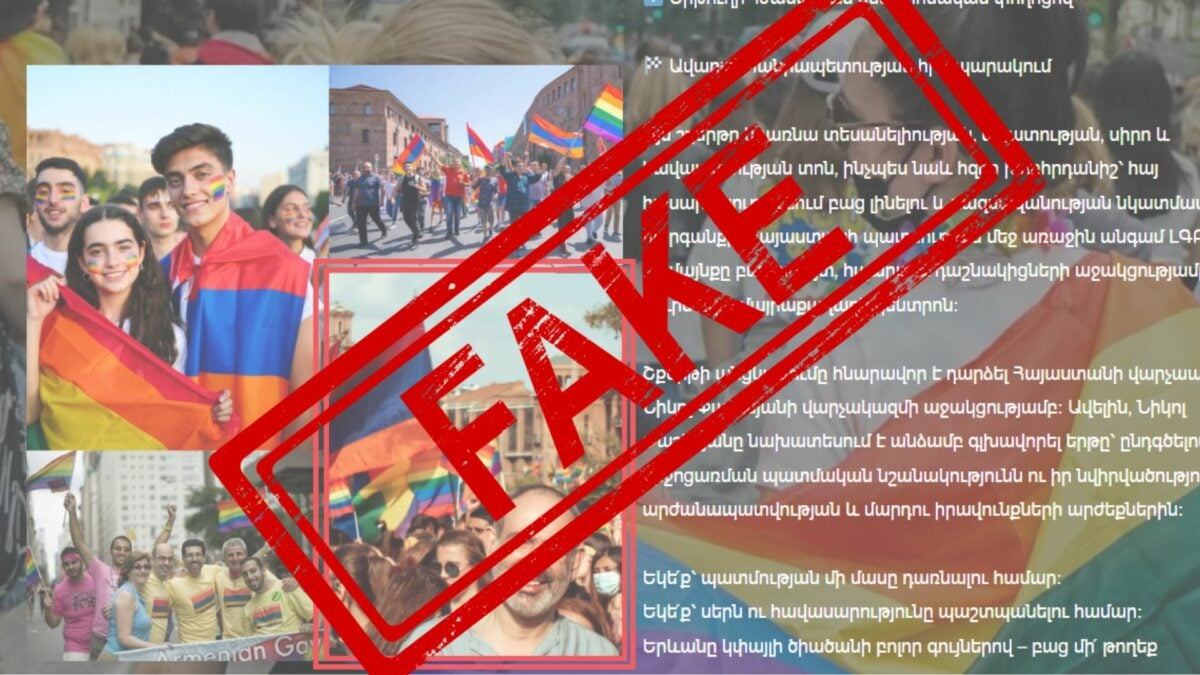There are plans to apply value-added tax (VAT) for the provision of electronic services in Armenia. Although the list of taxable electronic services has not yet been published by the government, the relevant authorities have already mentioned some of them: Facebook, Google, Apple.
The draft law was adopted in the National Assembly in the first reading and is expected to enter into force in 2022. However, according to the law on normative legal acts, the envisaged obligations will not apply until the RA government and the tax body establish the necessary procedures.
What will the new bill change in people’s lives?
In some cases, the new bill will not change anything for users of e-services, but there will also be cases when the cost of services will increase.
For example, people who buy an app or other service from Apple already pay VAT. It turns out that nothing will change for the users of the service. Lusine Ayvazyan, the head of the SRC information systems change management department, also mentioned this in the piece prepared by Public Television.
But if in the case of Apple the company already applies the value-added tax, and the new bill can return that money to Armenia, then in the case of a number of other services, including Facebook, the application of taxes can lead to an increase in their value.
What will happen if you use the advertising service on Facebook?
If the state demands VAT taxation, that Facebook service will become more expensive because the company will have to increase the cost of the service by the amount of taxes required of it.
There is currently no tax paid for advertising services on Facebook. The Facebook account (Invoice) shows the actual cost of advertising, and the tax line indicates 0%.
In other words, in the case of buying an advertisement for $25 from a social network, that $25 is actually paid, and if the company is obliged to apply VAT for its services in Armenia, 20% VAT will be added to that $25.
Facebook regularly updates the application of value-added tax in different countries. For example, in one of them the company announced, “Starting September 1, 2020, whether you are advertising for either business or personal purposes, if the ‘sold’ address is in Zimbabwe, we will add VAT to the cost of purchasing your Facebook ad at the current local tax rate.”
What, according to the draft law, is considered an electronic service?
If we explain clearly, this draft law regulates the taxation of electronic services provided to individuals in Armenia by companies not registered in Armenia.
According to the bill, in order for services to be considered electronic, they must be provided through an information and telecommunication network (including the Internet) and the mandatory use of information technologies.
As to which specific services will be taxed with VAT, that will be determined by the Government with a separate list after the law enters into force. The list will be published on the official website of the tax authority. The list of companies providing electronic services will also be published on the SRC website.
Why was the decision to tax electronic services made?
The Minister of Economy Vahan Kerobyan said at the August 6, 2021 sitting of the Government that as a result of the new regulation, according to their calculations, at least 20 billion AMD of additional tax will enter the state budget.
Although the State Revenue Committee did not announce any number, during the same session of the government, SRC Chairman Rustam Badasyan confirmed that in the absence of such regulation in the Tax Code, the state budget loses VAT revenues.
How will it be decided that the service is provided in the territory of the Republic of Armenia?
If the service recipient is an organization or sole proprietor registered in the Republic of Armenia, Armenia is already considered the place of service.
In the case of a natural person who is not a sole proprietor, according to the draft law, four criteria will be used to determine the place of electronic services: the place of residence of the individual, the location of the bank where the account is used by the individual receiving the electronic service, the network (IP) address used by him and the international code of the country of the telephone number.
Who will calculate and pay the VAT?
The process of calculating and paying VAT is different for those who are engaged in business and non-entrepreneurs.
The organization or individual entrepreneur will pay the cost of the actual service, and the VAT will be transferred to the tax authority. Part 2 of Article 70 of the Tax Code stipulates that if the organization or individual entrepreneur receives electronic services, the responsibility for calculating and paying VAT lies with the same organization or individual entrepreneur.
If the e-services are received by a natural person who is not a sole proprietor, he/she will not be in contact with the tax authority. According to the bill, the responsibility for calculating and paying VAT lies with the e-service provider (i.e., responsible for tax administration, for example, Facebook). For that, the latter must be registered with the tax body in the manner prescribed by the Government of the Republic of Armenia. After that, the e-service provider will submit a VAT calculation to the tax authority every quarter and pay it.
SRC Chairman Rustam Badasyan said at the August 6, 2021 sitting of the Government that a technical task of an electronic program has been designed, which will allow registering with the tax body electronically and submitting the relevant calculation.
Marie Tarian






